Katarzyna i Grzegorz Boberek mieszkali podczas II wojny światowej w Woli Żydowskiej (obecnie gmina Kije). Mieli ośmioro dzieci. Najstarsza córka przebywała na przymusowych robotach w III Rzeszy, kiedy w 1943 roku do gospodarstwa Boberków zapukali sąsiedzi i dobrzy znajomi: Abraham, Haskiel, Hershel i Icek Goldlist. Tylko ona ze wszystkich domowników nie była zaangażowana w pomoc żydowskim przyjaciołom.
Jestem taki głodny…proszę o pomoc – powiedział jeden z nich, gdy Boberkowie otworzyli drzwi. Ujęło ich to i przystali, że będą ich przetrzymywać – opowiada Dariusz Stachaczyk, wnuk Boberków.
Kryjówkę wykopano pod stodołą. Dół został przykryty słomą. Nocami ukrywani mogli przechodzić ze swojej kryjówki do szopy. Jak już się ktoś decydował, to starał się jakoś utrzymać tych ludzi – dodaje Dariusz Stachaczyk. Trzeba było zadbać o dodatkowe wyżywienie, wynosić nieczystości i przynajmniej raz w miesiącu uprać ich ubrania. Żywność dla ukrywanych często zanosiły w koszach dzieci. Trzeba było uważać, żeby nikt nie zauważył niczego podejrzanego, bo zabudowa we wsi była dosyć gęsta. Mama bardzo lubiła się z Heńkiem, jednym z przechowywanych – dodaje Dariusz Stachaczyk.
Władysława Boberek urodziła się w 1934 roku. Mimo bardzo młodego wieku wiedziała, że w gospodarstwie ukrywają się Żydzi i co grozi za udzielanie im pomocy. W rozmowach z nimi miała jednak mówić, że choćby mieli ją zabić, to ona nikomu nic nie powie.
Pod koniec wojny w gospodarstwie Boberków zakwaterowano także niemieckiego oficera. Wtedy trzeba było uważać jeszcze bardziej. Z jednej strony jego obecność stanowiła zagrożenie, ale była także ochroną dla ukrywanych i ukrywających. Oficer nie podejrzewał, że w gospodarstwie mogą ukrywać się Żydzi i gdy inny niemiecki żołnierz chciał zrobić w gospodarstwie rewizję, został przez niego wyproszony. Porozumienie się z oficerem ułatwiał fakt, że zarówno Katarzyna, jak i Grzegorz Boberkowie znali język niemiecki z lat zaborów.
Ukrywani szczęśliwie doczekali u Boberków do końca wojny. Jednak obawy nie zniknęły wraz z zakończeniem działań wojennych. Grzegorz Boberek powiedział ukrywanym, gdy opuszczali kryjówkę: idźcie dzieci, a jakby co, to nie przyznawajcie się, gdzieście byli.
W latach 80. XX wieku Goldlistowie, którzy krótko po wojnie wyjechali z Polski, odwiedzili Boberków. Katarzyna Boberek jeszcze wtedy żyła. Babcia wyszła…jak się przytulili do siebie…łzy, radość, szczęście… – wspomina spotkanie sprzed lat Dariusz Stachaczyk.
Katarzyna i Grzegorz Boberkowie w 1993 roku pośmiertnie otrzymali tytuł Sprawiedliwych Wśród Narodów Świata.
Episode 27
There is nothing to be ashamed of
The Boberek family (broadcast: 16.09.2018)
Katarzyna and Grzegorz Boberek lived in Wola Żydowska (now Kije municipality) during the Second World War. They had eight children. The oldest daughter was sent to forced labour in the Third Reich. It was in 1943 the Bobereks neighbours and good friends knocked on the door of their house. These were Abraham, Haskiel, Hershel and Icek Goldlist. From all household members, the oldest daughter was the only one not involved in helping Jewish friends.
I’m so hungry … please help us – said one of them when the Boberks opened the door. They were deeply touched and therefore agreed to offer a shelter to the JEws – recollects Dariusz Stachaczyk, the Bobereks’ grandson.
A hiding place was dug under the barn. The cavity was covered with straw. At nights, those in hiding could go out from their pit and go to the shed. When someone decided to offer help, they also tried to support these people somehow – adds Dariusz Stachaczyk. Extra food, waste removal and washing clothes at least once a month needed to be taken care of. Children would carry food in baskets for those in the hiding. They also needed to be very careful so that nobody could catch them red-handed. That was the village was a quite dense housing development.
Mom was very fond of Heniek, one of those in the hiding – adds Dariusz Stachaczyk. Władysława Boberek was born in 1934, although very young, she knew that Jews were hidden in the farm. She also knew what was the menance for rendering this type of help. However, she would say that she’d rather be killed than reveal a secret.
At the end of the war, a German officer was also accommodated at the Boberks’ farm. All had to be extra careful from then on. On the one hand, his presence was a threat. On the other, it was also a protection for those in the hiding and those who offered a shelter. The officer did not suspect that the Jews might be hiding on the farm. When some other German soldier wanted to search through the farm, the officer asked him to leave. It was easy to communicate with the officer because both Katarzyna and Grzegorz Boberks knew German from the partitions times.
Fortunately, the Jews were able to last it out till the end of the war in the hiding at the Bobereks’. However, the end of the war did not put an end to the fear. Grzegorz Boberek told those the hiding, when they were leaving: you are free to go, children, however do not tell anyone where you were.
In the 1980s of the twentieth century the Goldlists, who shortly after the war had left Poland visited the Boberks. Katarzyna Boberek was still alive then. Grandma went out to meet them … as they were hugging each other … there were tears, joy, happiness … – years after Dariusz Stachaczyk recalls the meeting.
Katarzyna and Grzegorz Boberkow in 1993 were posthumously awarded the Righteous Among the Nations title.





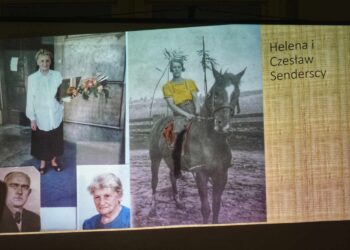
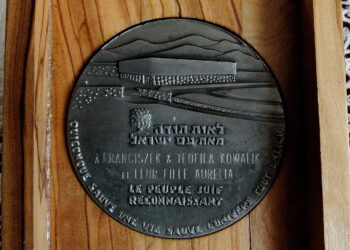
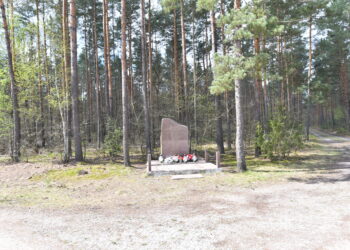
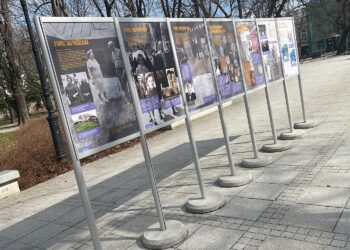
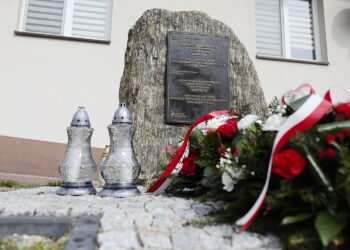
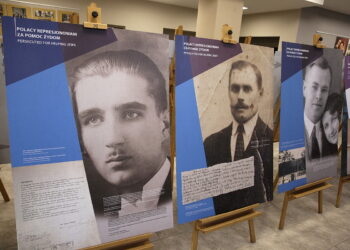
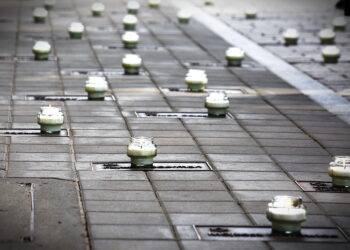
![TAK MINĄŁ DZIEŃ – WTOREK [25 CZERWCA] - Radio Kielce 22.12.2016 Sąd Okręgowy w Kielcach. Pierwsza rozprawa Piotra K. oskarżonego o zabójstwo kibica Korony Kielce / Wojciech Habdas / Radio Kielce](https://radiokielce.pl/wp-content/uploads/2019/06/wh2o6888-20161222-sad-okregowy-piotr-kupiec-rozprawa-112926-350x250.jpg)



